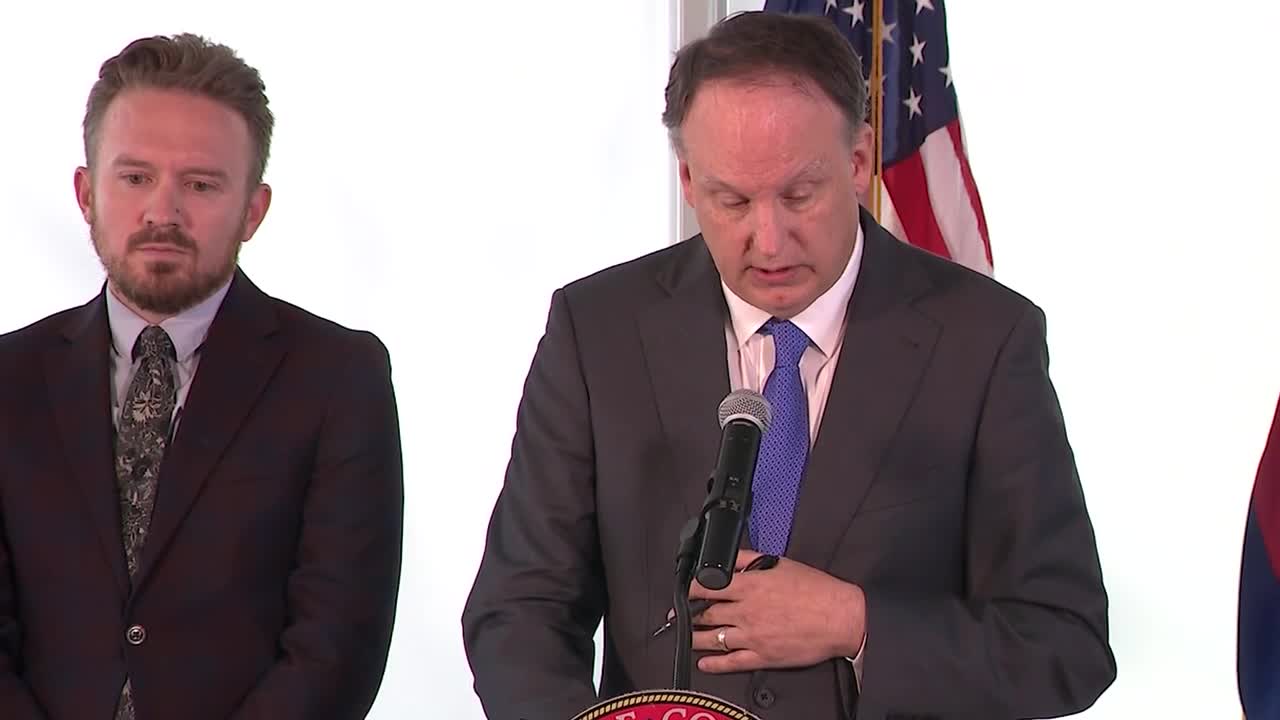DENVER — While costs have crept up for consumers, President Donald Trump’s tariffs haven’t yet led to the large price spikes many Coloradans feared. That has created a lot of confusion about the impact on consumers, so the Scripps News Group is getting answers.
On Thursday, Gov. Jared Polis released a new report showing the impact Trump’s tariffs could have on Colorado’s economy. The report said the tariffs “will likely lead to worse economic outcomes for both the U.S. and Colorado.”
“One thing that's clear: Everyone loses a trade war,” Polis said. “Everyone loses a tariff war. It’s a race to the bottom.”
- Read the full report below
The governor’s report said Colorado’s effective tariff rate, which is the actual average cost of taxes (tariffs) paid on imports, is higher than it has been in over 100 years.
“Today, Coloradans are paying seven times more in tariff taxes than one year ago,” Polis said.
According to the governor, the effective rate skyrocketed from 3% to 21%.
Polis and the state’s top economic experts said the tariffs are bad news for Colorado businesses and families.
“When businesses face high tariffs and the associated uncertainty and confusion, they have difficult choices,” said Jeff Kraft, the deputy director of the governor’s Office of Economic Development and International Trade. “Companies are forced to either pass costs on to consumers, which raises prices and can reduce revenue and obviously hurts the consumer, or they have to shift funds to cover the cost of the tariffs internally. If they do that, it can lead to significant reductions in research and development, reduced employment, job cuts and over time.”

After calling around, the Scripps News Group learned many local companies haven’t yet passed those costs on to consumers. In a social media post last month, Trump said it was mostly companies and foreign governments picking up the tab.
“It has been proven that even at this late stage, Tariffs have not caused Inflation, or any other problems for America, other than massive amounts of CASH pouring into our Treasury’s coffers,” Trump wrote.
Thee Scripps News Group's asked Zac Rogers, a professor of supply chain management at Colorado State University, to weigh in on the tariffs and the impact on consumers.
"I think it's been a slow creep,” Rogers said.
Rogers said costs from the tariffs are being spread around the supply chain, with different entities, such as suppliers and wholesalers, picking up some of the costs. By the time a product reaches the consumer, it’s not as expensive as it otherwise would have been.
"So, consumers are certainly seeing prices go up, but we're not getting hit with the full 25%, 40%, 50% [tariff],” he said.
Rogers told the Scripps News Group many companies stockpiled inventory ahead of the tariffs, which is also keeping prices down. However, that will change.
"My guess, and based on all the people we talk to when we do our index, is that in the holiday season, we will see prices go up,” Rogers said. “50% tariffs on India, 50% tariffs on Brazil, 25% Japan, that's not all going to be passed to consumers. But a portion of it will absolutely be passed to consumers, and it will be a bit of a game for retailers to figure out how much will consumers absorb, and how much do we have to absorb?”
The governor's report said key Colorado industries, such as aerospace, agriculture, construction, energy, and goods-focused businesses, are among the most vulnerable to tariffs.
“Businesses that are hit with tariffs have to drive up costs for consumers, raise prices, might lay people off,” Polis said, adding that the analysis showed tariff escalation could push the state into a recession and cost the state budget as much as $800 million in lost revenue within two years.
The governor said he believes Trump has exceeded his authority on tariffs and wants Congress to “show a spine.”
“Congress absolutely can more limit the authority of the president,” Polis said. “They can do that in the spending bills that they're considering going through right now. They can restrict the ability of any president to unilaterally impose tariffs, particularly under the circumstances that President Trump cited emergency authority. Congress can do that as part of the appropriations bills that are going through Congress now, and I would encourage Congress to include that language that prevents a president unilaterally from starting and escalating these kinds of trade wars that damage our economy.”
Polis said the U.S. Supreme Court could ultimately decide whether the president overstepped his authority. On Wednesday, Trump urged the SCOTUS justices to overturn a lower court’s decision, which found his administration acted unlawfully by relying on emergency powers to impose many of the tariffs.
“I'm very hopeful that that case will limit the president's power in that area, but it doesn't end the trade war, it doesn’t end the president’s apparent affinity for these huge tax increases,” Polis said. “Although it would be a major step forward for our economy and for Colorado.”
Polis said his team would also provide additional analysis if there are significant updates to the tariffs.




